UK’s huge Covid vaccine backflip for health workers, in response to rise of Omicron
The British government has announced a major change to its Covid vaccination policy, in response to the rise of the Omicron variant.
Coronavirus
Don't miss out on the headlines from Coronavirus. Followed categories will be added to My News.
Healthcare workers in the UK will no longer need to have mandatory Covid jabs in order to perform their jobs, it has been announced.
British Health Secretary Sajid Javid confirmed that the rule – due to come into effect from April and introduced in response to the Delta variant – had been scrapped.
“Given the Delta has been replaced it’s only right that our policy on vaccination as a condition of deployment is reviewed,” Mr Javid said, per The Mirror.
“I believe it is no longer proportionate to require vaccination as a condition of employment through statute,” he said, in response to the rise of the Omicron variant.
“So today, I am announcing we will launch a consultation on ending vaccination as a condition of deployment in health and all social care settings.
“Subject to the responses, and the will of this House, the government will revoke the regulations.”
UK COVID RULES SET TO CHANGE
Major Covid rule changes are set to come into force on Monday, local time, as Brits continue to get back to normality following soaring Omicron infections.
Rules that came back in last year have slowly been dismantled – with working from home orders stopped last week.
As reported in The Sun, Covid restrictions in elder care homes will be relaxed on Monday as Covid-19 cases driven by the Omicron variant are now falling and the country moves towards living with coronavirus.
Under Plan B restrictions, limits had been introduced on nursing home visits, meaning millions of people were unable to spend time with their loved ones.
From Monday, the three visitor limit that was bought in will be scrapped.
Then from February 16, those who work in a care home will have to take lateral flow tests before every shift.
The current system means that they have to take weekly PCR tests alongside lateral flow tests three times a week.
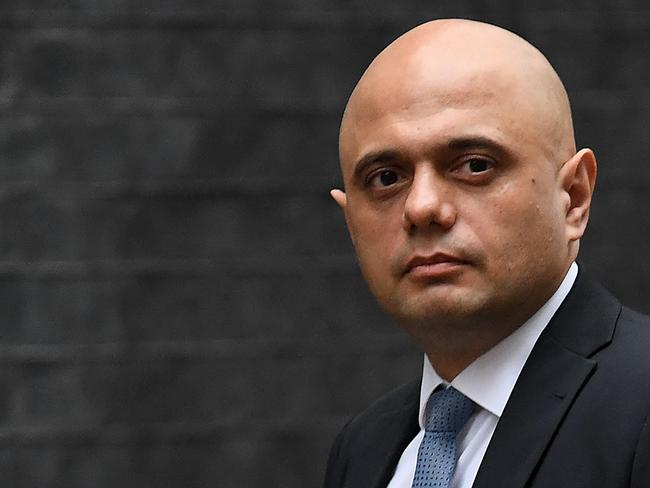
Health secretary Sajid Javid said almost nine in 10 care home residents had been triple jabbed – meaning it was safe to relax the rules on visitation.
“I know how vital companionship is to those living in care homes and the positive difference visits make, which is why we continued to allow three named visitors and an essential care giver under Plan B measures.
“Thanks to the progress we have made, I am delighted that care home restrictions can now be eased further allowing residents to see more of their loved ones”, he said.
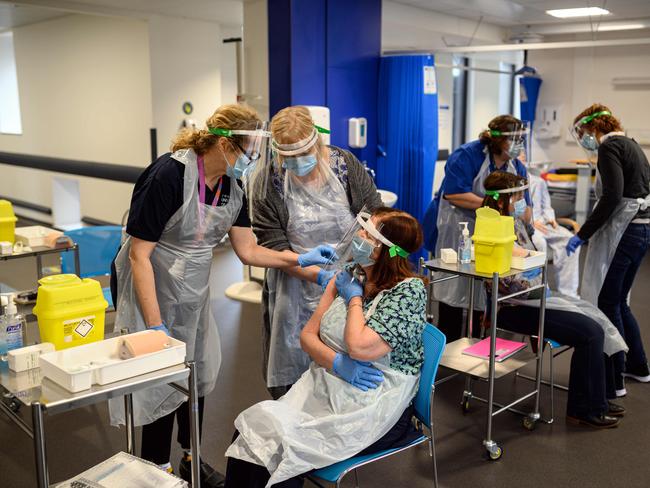
JABS
Also from Monday, thousands more Brits will be able to get their Covid jabs.
The NHS has dished out lifesaving jabs to millions amid a record-breaking rollout throughout the pandemic.
All over-18s and some vulnerable teens have been offered their second doses and boosters to beat back the Omicron wave.
Now, from Monday vulnerable five to 11 year olds can have their first jab to protect against Covid.
The decision was made to give vaccines to the select group of youngsters in December, with the NHS working to get ready for the rollout.
Children can’t have the same dose size as adults, and so special equipment has been brought in for GPs to use throughout the country.
NHS England gave medics until the end of January to be ready for the next stage in the rollout.
From next week selected kids, around 330,000, will get two doses of a smaller amount of vaccine, with a gap of eight weeks between each injection.
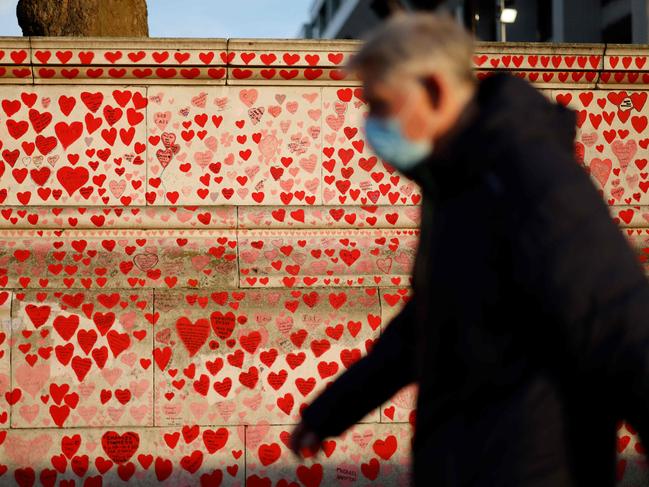
FACE MASKS
Rules on wearing masks in public places in England were torn up at midnight on Thursday.
People had to cover up on public transport and in shops, post offices, banks, beauty salons, hairdressers, theatres and cinemas.
Brits are now once again allowed to pop into any of these places without a face mask.
However Brits are still advised to continue wearing them in busy areas or on public transport.
VACCINE PASSPORTS
Brits will no longer have to show proof of vaccination or a negative test to enter large venues like football grounds and nightclubs.
All domestic use of vaccine passports was dropped at midnight in a move that will please many Tory MPs.
Mr Johnson faced a huge Commons rebellion when the measure was introduced last month and only got it through thanks to Labour.
Previous restrictions covered indoor events of more than 500 people and outdoor arenas hosting more than 4,000.
At the time the Government justified jabs papers by saying they were “preferable to closing venues entirely or reimposing social distancing”.
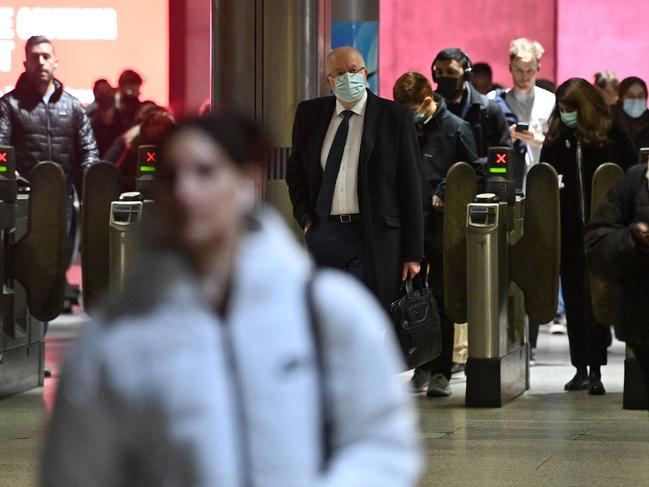
TRAVEL
All Covid tests for vaccinated holiday-makers will be scrapped from 4am on February 11.
Grant Shapps said that arrivals will only need to fill in a Passenger Locator Form when entering the UK, as long as they have had both jabs.
He said: “From 4am on February 11, and in time for the half-term break, eligible, fully vaccinated passengers arriving in the UK will no longer have to take a post-arrival lateral flow test.
“That means after months of pre-departure testing, post-arrival testing, self-isolation and additional expense, all that fully vaccinated people will have to do when they travel to the UK is to verify their status via Passenger Locator Form.
“We are therefore scrapping all travel tests for vaccinated people, not only making travel much easier, but also saving about £100 (A$190) per family on visits abroad.”
In a double-boost for half-term holidays, 12-to-15-year-olds will be able to download the digital proof of vaccination, Shapps confirmed.
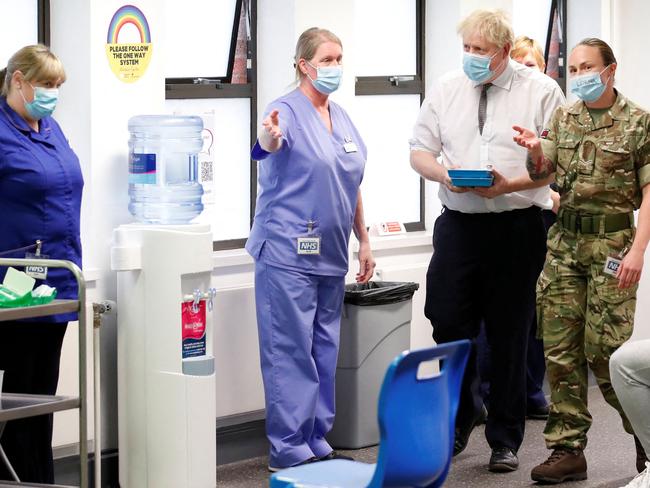
ISOLATION
Isolation rules are set to expire on March 24 – or sooner – meaning people who test positive for Covid are not legally obliged to isolate.
Currently everyone who tests positive for the virus must quarantine at home for at least five full days – and this is not changing.
If you return two negative lateral flow swabs on days five and six you can then leave isolation early.
Fully vaccinated Brits who come into contact with an infected person should test daily but don’t have to isolate so long as they remain negative.
Meanwhile unvaccinated people who are close contacts of Covid sufferers must go into quarantine for 10 days.
There are fines of up to £10,000 (A$19,000) for flouting the laws.
It could be scrapped in March however, if cases remain low and no more severe variants emerged.
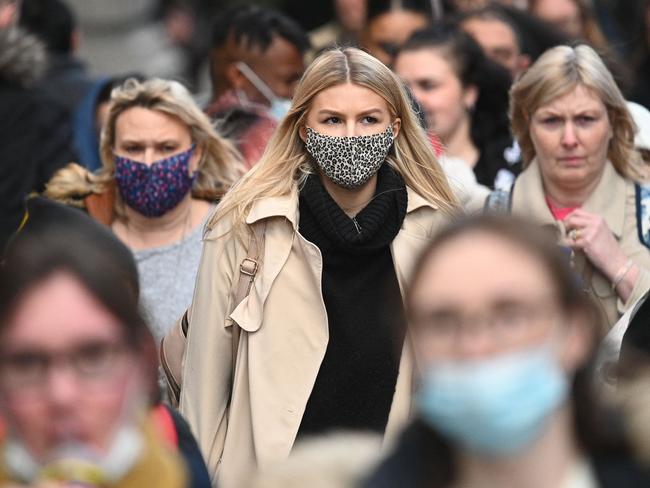
RETURN TO THE OFFICE
Brits were told to flock back to offices on Friday January 21 in a major boost to the economy.
Cabinet ministers had been pushing the PM hard to ditch the home working rules.
People were ordered to return to teleworking on December 8 in a bid to help stop the lightning spread of Omicron.
While the measures technically took the form of advice, it was followed by many companies with city centres falling quiet.
The Government says that “high levels of home working have played a very important role in preventing sustained epidemic growth”.
“I think it’s a really good thing,” Elizabeth Hynes, 71, told France24.
“I was coming up the lifts here at St Paul’s and I was looking at all the shows” being advertised, she said of the posters inside the underground station.
“And I thought ‘how wonderful, it’s like old times’. It’s like we’re getting back to how London was, and you realise how much you’ve missed live theatre and fantastic shows.”
Hynes, who has lived in England for 47 years, said she had so far “been lucky” and not caught Covid.
“We don’t know about tomorrow, we have to live … for today, trying to get a bit of enjoyment out of life”
– With The Sun.


